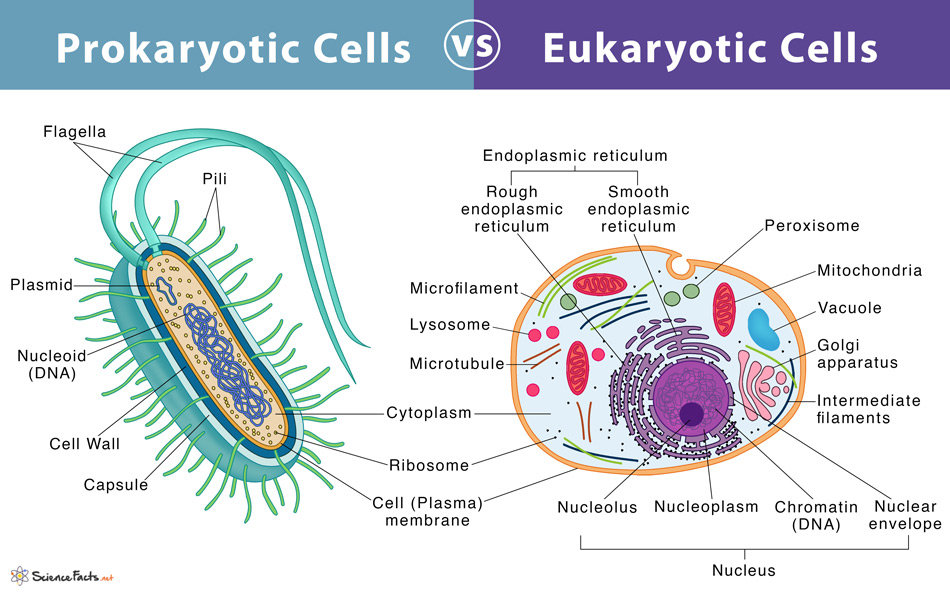
Prokaryotes vs. Eukaryotes Definition and Characteristics
Cell Size At 0.1-5.0 µm in diameter, prokaryotic cells are significantly smaller than eukaryotic cells, which have diameters ranging from 10-100 µm ( Figure 3.6 ). The small size of prokaryotes allows ions and organic molecules that enter them to quickly spread to other parts of the cell.
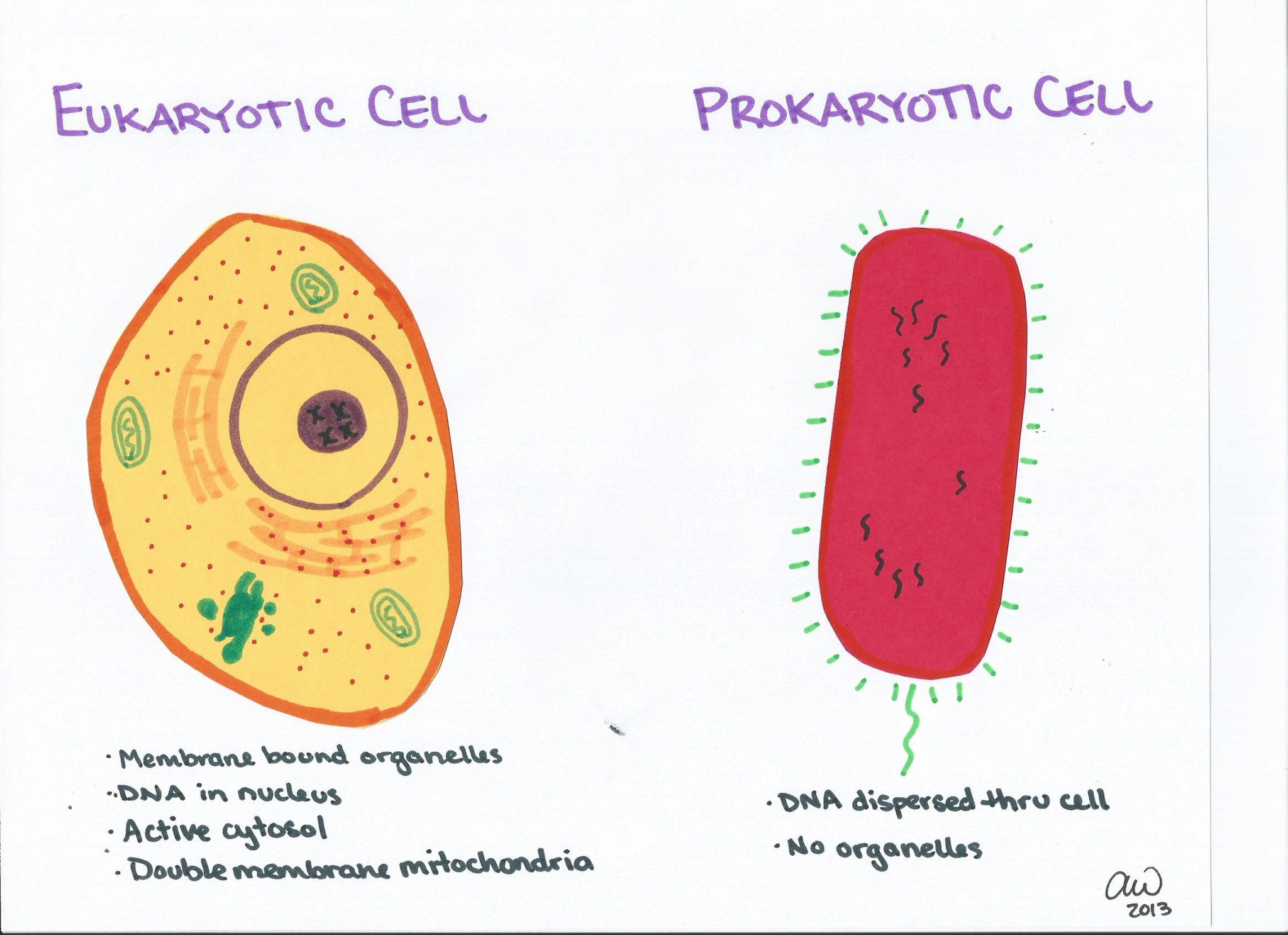
10 verschillen tussen prokaryoten en eukaryoten Alles wat u moet weten
AQA Cell structure - AQA Eukaryotes and prokaryotes Organisms are made up of cells. Most organisms are multicellular and have cells that are specialised to do a particular job. Microscopes are.
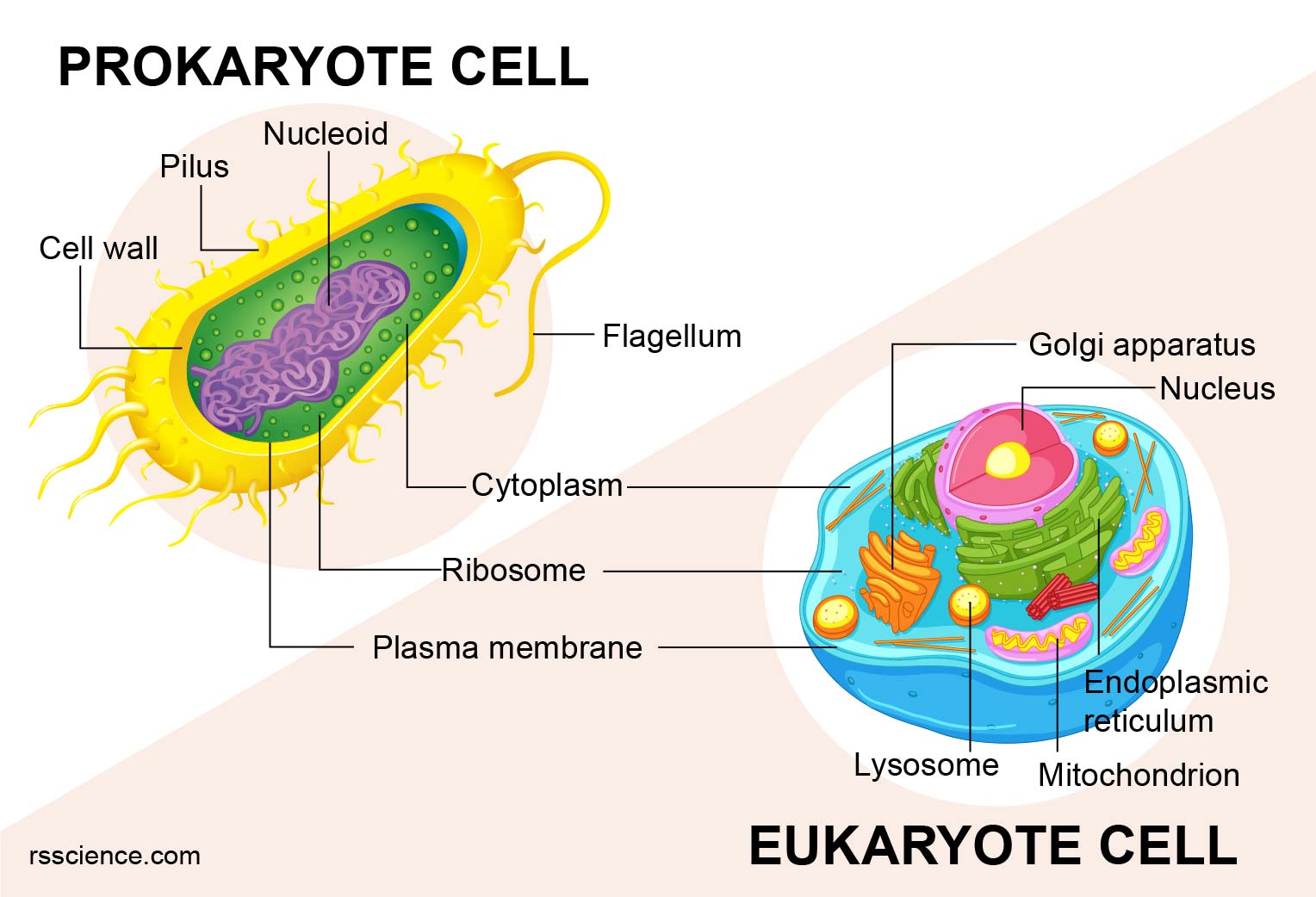
Eukaryotes and Prokaryotes What are the Similarities, Differences
At 0.1-5.0 μm in diameter, prokaryotic cells are significantly smaller than eukaryotic cells, which have diameters ranging from 10-100 μm ( Figure 5.2.3 5.2. 3 ). The small size of prokaryotes allows ions and organic molecules that enter them to quickly spread to other parts of the cell.
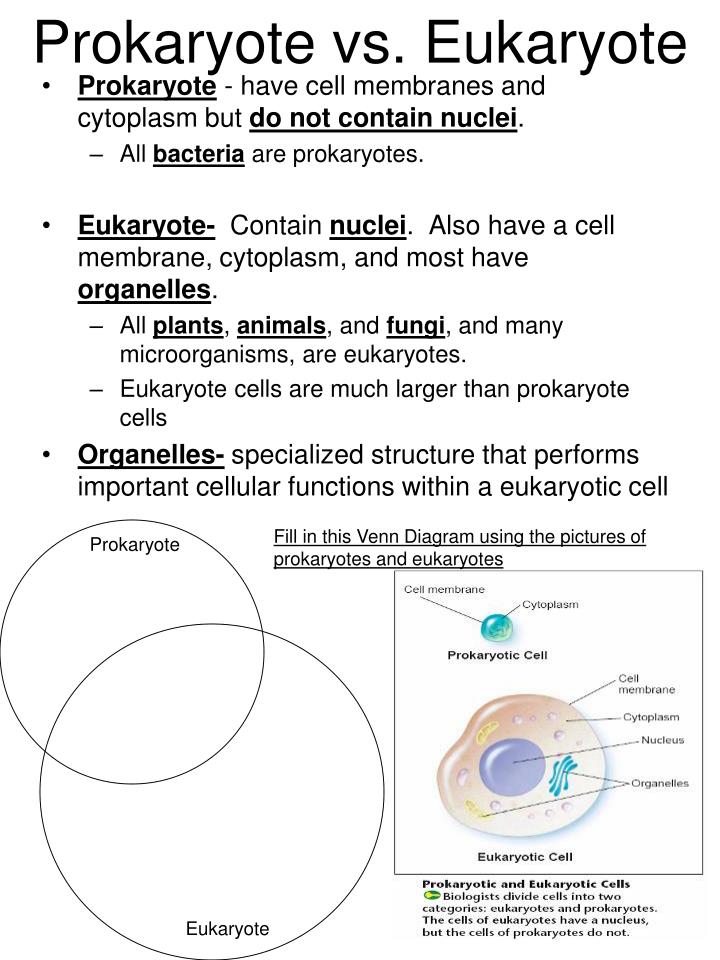
Eukaryotic And Prokaryotic Venn Diagram General Wiring Diagram
The prokaryotes and eukaryotes Venn diagram graphic organizer is a great way for students to compare and contrast the characteristics of these two types of cells.Includes two versions:Version 1. Students cut and paste labels onto the correct part of the Venn diagram.Version 2.

Prokaryote And Eukaryote Venn Diagram Free Diagram For Student
FAQs Activities What are examples of prokaryotes? Most prokaryotes are bacteria. Some examples of bacteria are cyanobacteria, streptococcus pyogenes, and lactobacillus acidophilus..

Wiring Diagram Database Venn Diagram Prokaryotic And Eukaryotic
Prokaryotes are organisms made up of cells that lack a cell nucleus or any membrane-encased organelles. Eukaryotes are organisms made up of cells that possess a membrane-bound nucleus that holds genetic material as well as membrane-bound organelles. Understanding Cells and Cell Membranes
/Prokaryotic-and-Eukaryotic-cells-58f679525f9b581d593bbaed.jpg)
What Does Differentiation Mean In Biology Risala Blog
Top creator on Quizlet Terms in this set (16) Term Prokaryotes Definition Bacteria and Archaea Location Term Simple Definition not complex Location Term lack Definition do not contain Location Term organelles Definition specialized structures within a living cell. Location Term Single Definition one Location Term Circular Definition

Eukaryote And Prokaryote Venn Diagram alternator
The prokaryotes and eukaryotes Venn diagram graphic organiser is a great way for students to compare and contrast the characteristics of these two types of cells. Includes two versions: Version 1. Students cut and paste labels onto the correct part of the Venn diagram. Version 2. Students write the correct statement into boxes on the Venn diagram.
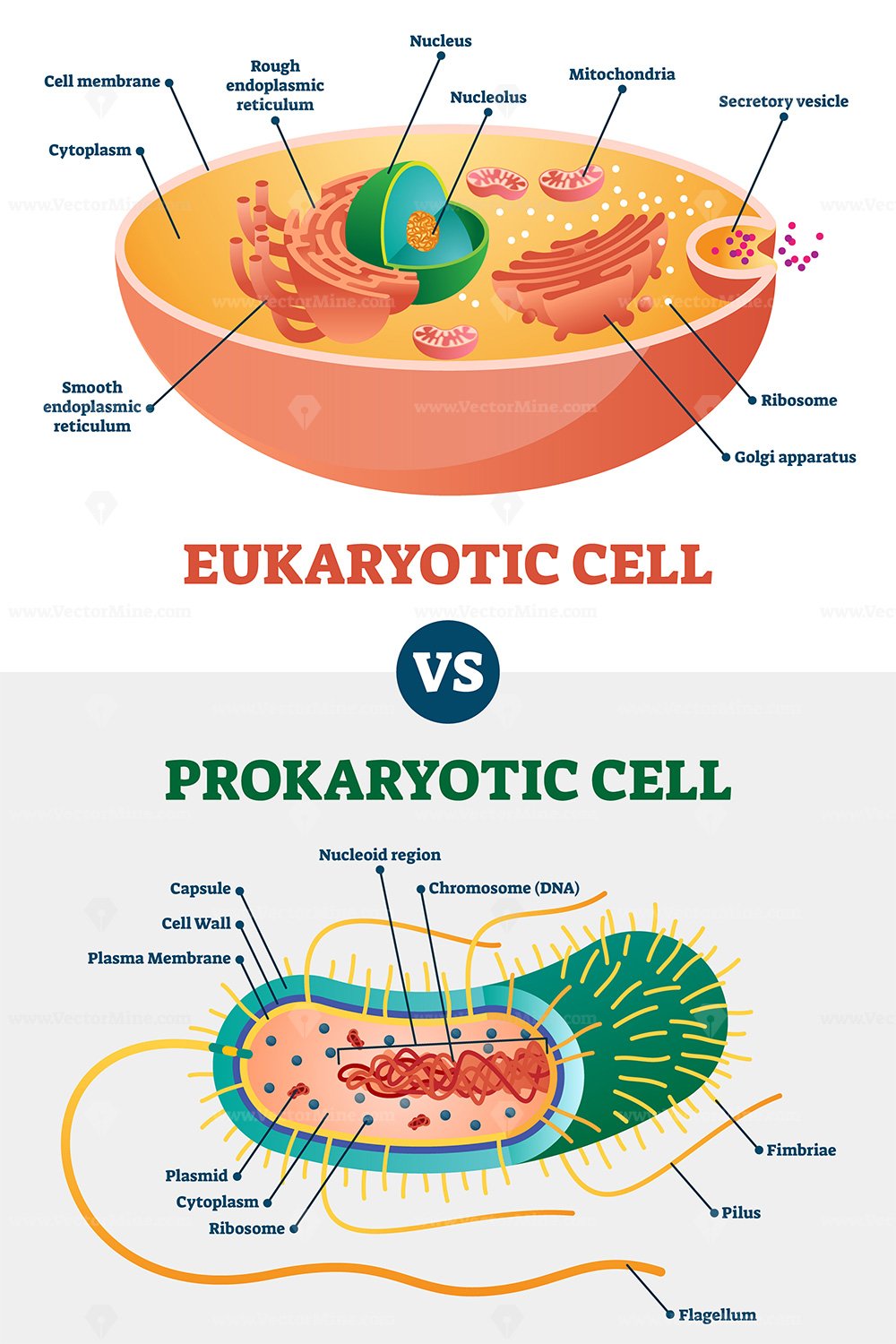
Eukaryotic vs Prokaryotic cells, educational biology vector
Key points: Prokaryotes are single-celled organisms belonging to the domains Bacteria and Archaea. Prokaryotic cells are much smaller than eukaryotic cells, have no nucleus, and lack organelles. All prokaryotic cells are encased by a cell wall. Many also have a capsule or slime layer made of polysaccharide.
12 Best Images of Prokaryotic Vs Eukaryotic Cells Worksheet
(210) 615-6544 Brief Summary of Unit (Including curricular context and unit goals): This unit is meant to provide a concrete and hands-on approach to introducing cells and differences between prokaryotic cells (cells without a nucleus), and eukaryotic cells (cells with a nucleus).

Prokaryote Vs Eukaryote Venn Diagram YouTube
The main differences are given below. What is the Difference between Prokaryotic and Eukaryotic Cells Basis Prokaryotic Cell 1. Examples Cells of bacteria, archaea or Cells of plants, animals, fungi, algae, archaebacteria, and cyanobacteria or and protozoa (protists) blue-green algae 2. Type Unicellular 3. Size diameter) 4.
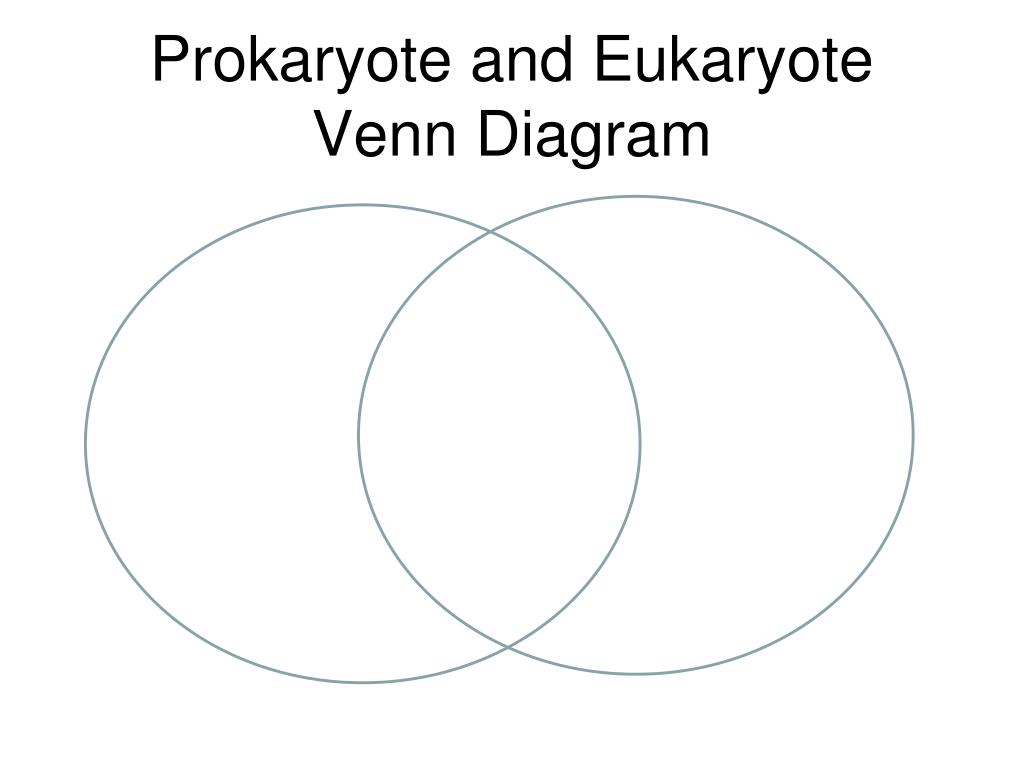
Prokaryote And Eukaryote Venn Diagram Wiring Diagram
Prokaryotic and Eukaryotic Venn Diagram Worksheet Prokaryotic and Eukaryotic Worksheet Directions: Write in the similarities and differences between prokaryotic and eukaryotic cells. Smaller (1-5 um) No membrane bound organelles Reproduces by binary fission Undergoes Mitosis/Meiosis to make new cells • Ribosomes Ribosomes present present

Great Venn Diagram Of Prokaryote And Eukaryote in the world Access here!
Despite these similarities, prokaryotes and eukaryotes differ in a number of important ways. A prokaryote is a simple, single-celled organism that lacks a nucleus and membrane-bound organelles. We'll talk more about the nucleus and organelles in the next article on eukaryotic cells, but the main thing to keep in mind for now is that prokaryotic cells are not divided up on the inside by.

Prokaryote Vs Eukaryote Diagram
Prokaryotes vs Eukaryotes Venn Diagram What is the Difference between Prokaryotic and Eukaryotic Cells What do Prokaryotes and Eukaryotes have in Common Both prokaryotic and eukaryotic cells are alike in some ways and share some common features that are given below:

Differences Between Prokaryotic Cell and Eukaryotic Cell BYJU’S
Prokaryotes and Eukaryotes - Infographic Template Use This Template Highlight the differences and similarities between prokaryotes and eukaryotes using this straightforward Venn diagram template. Help your audience understand complex topics using Visme's engaging Venn diagram template.
Prokaryote Vs Eukaryote Venn Diagram Prokaryotes Vs Eukaryotes Porn
Prokaryotic and eukaryotic cells. Eukaryotic cells contain membrane-bound organelles (such as the nucleus and mitochondria), while prokaryotic cells do not. DNA in eukaryotic cells is found inside the nucleus, while DNA in prokaryotic cells is located in the cytoplasm. Eukaryotic cells are generally larger and more complex than prokaryotic cells.